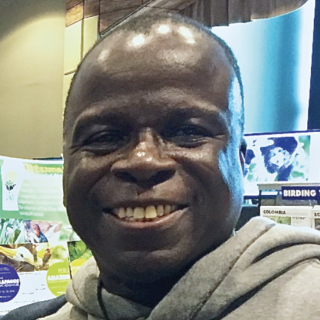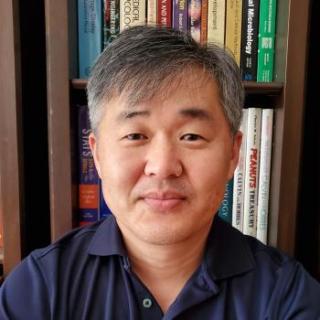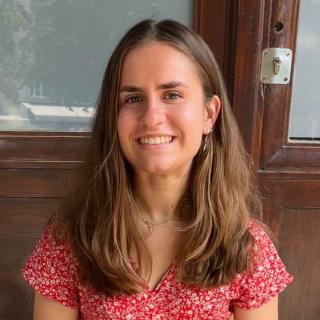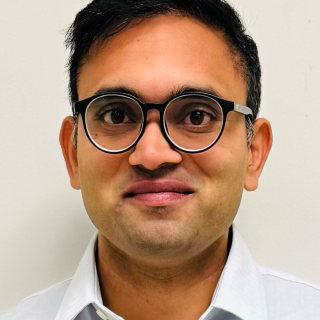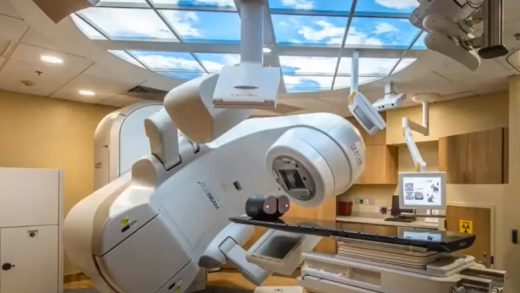
Freddy E. Escorcia, M.D., Ph.D.
- Center for Cancer Research
- National Cancer Institute
- Building 10 Room 1B55
- Bethesda, MD 20892
- 240-858-3062
- freddy.escorcia@nih.gov
RESEARCH SUMMARY
Laboratory of Molecular Radiotherapy Mission:
To design, engineer, and test targeted drugs to diagnose and treat people with cancer
On Radiopharmaceutical Therapy:
Advances in engineering of tumor-specific molecules to guide cytotoxic treatments, such as chemotherapy or radionuclides, have resulted in new classes of cancer drugs which have the potential to kill tumors while mitigating toxicities to normal tissues, moving us closer to truly tumor-targeted, personalized cancer treatment for our patients. Targeted radionuclide therapy provides an orthogonal mode of cell killing that is distinct from, yet complementary to, existing small molecule and chemotherapy treatments. By harnessing systemic, targeted radionuclides, our group aims to develop new agents to help us better treat and monitor cancer patients.
Clinical:
Dr. Escorcia is also a board-certified attending radiation oncologist within the Radiation Oncology Branch and treats patients with all tumor types amenable to radiation therapy, including gastrointestinal and hepatobiliary malignancies. He is fluent in Spanish and English.
Areas of Expertise
Information for Patients
Learn more about our clinical trials and the highly specialized care teams that lead them.

Freddy E. Escorcia, M.D., Ph.D.
Clinical Trials
Research
The Laboratory of Molecular Radiotherapy leverages modern technology to achieve the following:
- Identify promising tumor- or tumor microenvironment-selective targets
- Discover low molecular weight biomolecules specific to these targets
- Design, engineer and test radioconjugates in vitro and in vivo
- Translate lead radioconjugates to first in human clinical trials
Current efforts are focused on engineering radioconjugates to yield molecular PET or SPECT imaging agents for hepatocellular carcinoma (HCC), which is critical in early diagnosis and surveillance of this disease and suboptimal with existing conventional methods, especially following local treatments. Importantly, our efforts toward the development of novel imaging agents for HCC yield insights which we can use to inform development of therapeutic agents. While our focus is on radiopharmaceuticals, what we learn can be translated to similar technologies including antibody- or peptide-drug conjugates, and have applications beyond HCC as well.
Because we know that radiopharmaceutical therapy is unlikely to result in cures, future efforts in identifying relevant targetable cellular resistance pathways will help guide rational treatment combinations to improve the outcomes for patients.
Publications
Biography

Freddy E. Escorcia, M.D., Ph.D.
Dr. Freddy E Escorcia is a Lasker Clinical Scholar, and Investigator within the Radiation Oncology and Molecular Imaging Branches at the Center for Cancer Research within the National Cancer Institute. There, he treats patients with malignancies amenable to radiotherapy, including hepatocellular carcinoma (HCC). He is also the head of the Laboratory of Molecular Radiotherapy, which develops targeted radiopharmaceutical diagnostics and therapeutic agents, or “theranostics,” for human cancers, with particular focus on HCC. He is also the lead principal investigator on a phase 2 clinical study evaluating efficacy of novel positron emission tomography (PET) imaging agent in patients with HCC (NCT05009979).
Originally from Nicaragua, Dr. Escorcia earned his BS in Bioengineering and Chemistry at the University of Illinois at Urbana-Champaign. He then went on to the Tri-Institutional MD/PhD program of Weill Cornell Medical College, Memorial Sloan Kettering, and The Rockefeller University, earning his PhD in Cancer Pharmacology. His thesis work involved the design, engineering and characterization of tumor vasculature-targeted alpha particle-emitting radioconjugates in models of colorectal cancer. Dr. Escorcia completed his intern year and Radiation Oncology residency at Memorial Sloan Kettering, as well as a postdoctoral fellowship developing pancreatic adenocarcinoma-targeting radiopharmaceuticals.
During his time at the NCI, he has earned Outstanding Mentor award, Distinguished Scholar, and FLEX Synergy Award 2019, Director’s Innovation Award in 2022, and American Chemical Society Early Career Innovator in Bioconjugate Chemistry in 2023. He is an active member of American Society for Radiation Oncology (ASTRO), serving on the Committee on Healthy Equity, Diversity and Inclusion, Advancing Research Talent Committee, and as Vice Chair of the Radiopharmaceutical Therapy Committee. When not actively involved in the lab or clinic, Dr. Escorcia enjoys reading, weight-training, and spending time with his wife and two daughters.
Job Vacancies
We have no open positions in our group at this time, please check back later.
To see all available positions at CCR, take a look at our Careers page. You can also subscribe to receive CCR's latest job and training opportunities in your inbox.
Team
News
Apr 2023
Thanks to Dr. Willers Henning, Dr. Escorcia presents work from the lab to Mass General Radiation Oncology Department for Grand Rounds. Met many scientists and clinicians with interests in radiopharmaceuticals!
Dr. Escorcia visits Johns Hopkins Radiation Oncology and Molecular Radiation Sciences to discuss preclinical and clinical collaborations across the two institutions, with particular focus on GI malignancies.
Mar 2023
NIH/Oxford-Cambridge PhD Student, Stanley Fayn, has his first first author paper on using a GPC3-specific single domain antibody for immunoPET of liver cancer was published in The Journal of Nuclear Medicine!
Dr. Escorcia shares work from the lab helping to identify tumor-selective targets for hepatocellular carcinoma (HCC) at the European Society for Molecular Imaging (ESMI) European Molecular Imaging Meeting 2023 in Salzburg, Austria!
Nov 2022:
Postdoc fellow Dr. Paden King represents the lab as speaker for the Oak Ridge National Lab's workshop on Evolving Targeted Therapies for Cancer as part of the Accelerating Radiotherapeutic Innovations and Applications (ARIA) series.
Dr. Escorcia helps organize webinar series entitled "Toward Systemic Brachytherapy: Incorporating Radiopharmaceuticals into your Practice Symposium"
Postdoc fellow Dr. Paden King's manuscript reporting on our novel alpha particle peptide receptor radionuclide therapy is accepted in The Journal of Nuclear Medicine.
Oct 2022:
Dr. Escorcia presents work from the lab at the Radiation Research Society in Kona, HI as part of the Theranostics session chaired by Dr. Carolyn Anderson.
Sept 2022:
Dr. Escorcia invited as Keynote Speaker at the Karmanos Cancer Institute of Wayne State University's Molecular Imaging Program Annual Retreat.
Aug 2022:
Dr. Escorcia discussion radiopharmeceutical therapy on Healthcare Unfiltered Podcast hosted by Dr. Chadi Nabhan along with ASTRO president elect and Chair of Radiation Oncology at Washington University in St. Louis, Dr. Jeff Michalski, and University of Chicago Chair of Radiation Oncology, Dr. Ralph Weichelbaum.
Postbac Stan Fayn begins his PhD thesis work in our lab as an NIH-Oxford/Cambridge student and presents his work at the World Molecular Imaging Conference
Jul 2022:
Postbac Stan Fayn's poster on his work developing nanobody immunoPET for imaging of hepatocellular carcinoma was selected for the Gordon Research Conference Radionuclide Theranostics for the Management of Cancer
Postdoc Paden King's poster on his work developing novel SSTR-specific ligands for targeted alpha particle therapy of neuroendocrine tumors was selected for the Gordon Research Conference Radionuclide Theranostics for the Management of Cancer
Jun 2022
Proposal collaborating with Dr. Ross Cheloha and Dr. Mitchell Ho received NIH Director's Challenge Innovation Award! The project will create a fusion of two single domain antibodies (aka nanobodies): 1) Dr. Ho's anti-Glypican-3 nanobody and 2) Dr. Cheloha's novel self-labeling nanobody to yield a novel site-specific hepatocellular carcinoma-targeted imaging and/or therapeutic agent.


